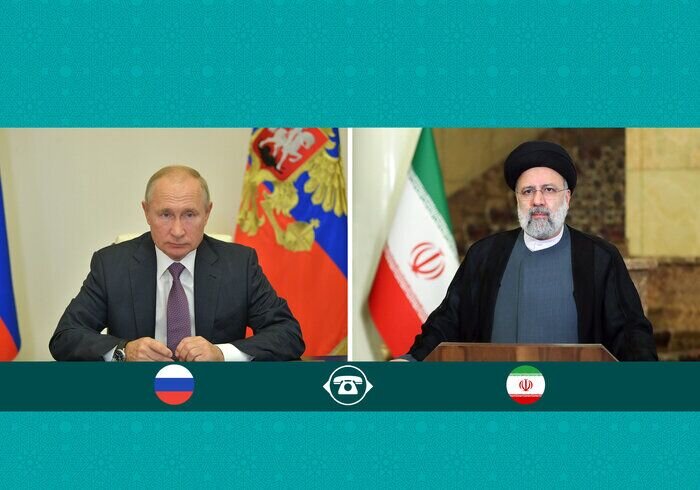Responding to Vladimir Putin’s telephone call on Tuesday, Ebrahim Raeisi commended the progress in the bilateral relations between the two countries as “favorable” and called for accelerating the implementation of joint agreements and projects in the fields of transit, transportation, energy exchange and the completion of the International North-South Transport Corridor (INSTC).
The 162-kilometer corridor along the Caspian Sea coast connects India, Iran, Russia, Azerbaijan and other countries via railways and sea and can rival the Suez Canal as a major global trade route.
Appreciating Russia’s support for Iran's membership in the BRICS group of emerging economies, Raeisi said, “BRICS is one of the effective and nascent organizations in shaping a multipolar world, and providing suitable grounds for the expansion of bilateral, regional and international relations between Iran, Russia and other member states.”
The group was formed by and initially consisted of Brazil, Russia, India, China, and South Africa, which collectively represent around 40% of the global population and a quarter of the world’s gross domestic product (GDP).
Experts see BRICS as a viable counterweight to the G-7, a powerful US-led political forum that includes Canada, France, Germany, Italy, Japan, and the UK.
Putin, for his part, told his Iranian counterpart during the phone call on Tuesday that the volume of trade between the two countries witnessed a record last year.
Describing Iran as a “strategic partner” of Russia, Putin expressed hope for the implementation of the Rasht-Astara railway, which is part of the INSTC, as soon as possible and connecting the railway lines of Iran, Azerbaijan and Russia to each other.
The Russian leader pointed to the significant impact of the railway on the increase of trade exchanges between the three countries.
The two president also exchanged views on the regional developments, underlining the need to resolve the conflict in the South Caucasus region over Nagorno-Karabakh through dialogue and avoiding foreign interference in the issues related to the region.
Nagorno-Karabakh is a landlocked region in the Caucasus Mountains, which lies within Azerbaijan’s borders.
Karabakh has always been internationally recognized as part of Azerbaijan though it is mostly populated by ethnic Armenians who have resisted Azerbaijan’s sovereignty over the territory since a separatist movement waged a war against Azerbaijan in 1994 and captured it.
MNA/Press TV

























Your Comment